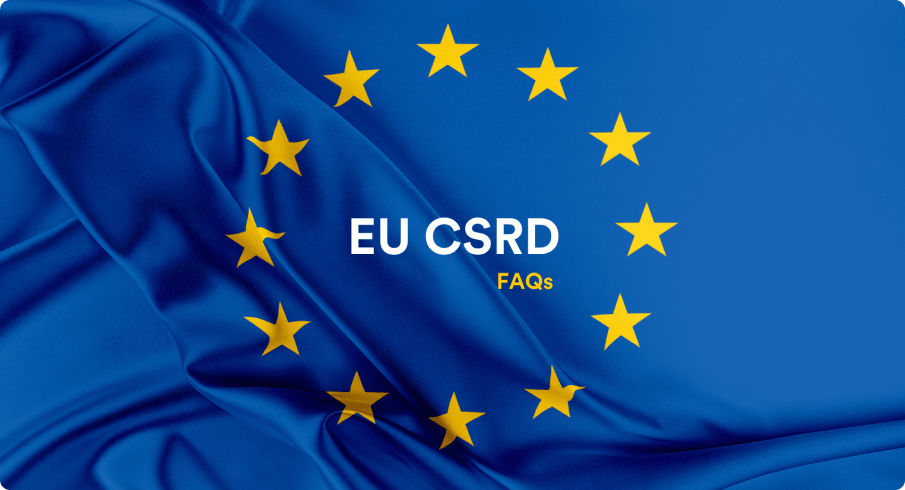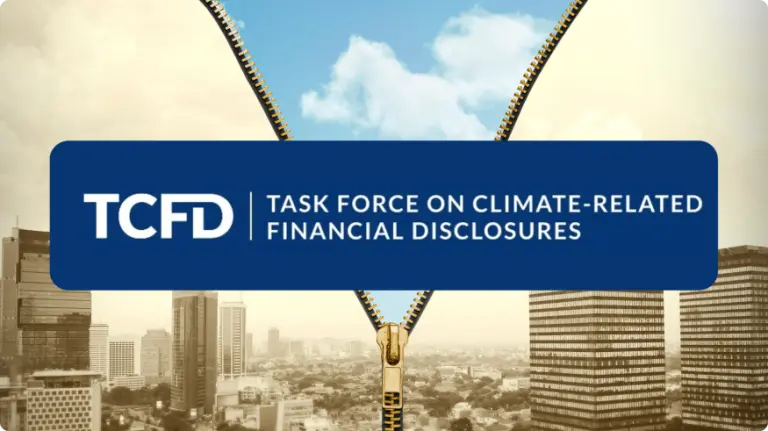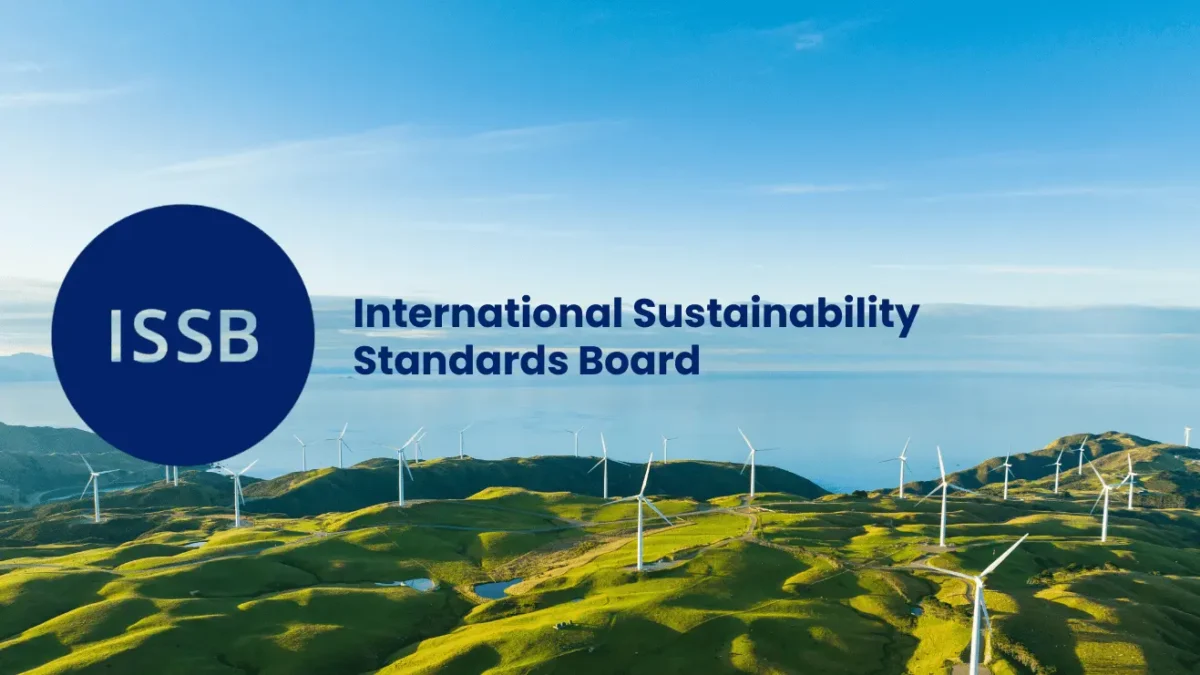The CSRD targets financial and non-financial companies covered by the Accounting Directive and the Transparency Directive, and falling into the following categories:


The CSRD targets financial and non-financial companies covered by the Accounting Directive and the Transparency Directive, and falling into the following categories:

The United States Securities and Exchange Commission (SEC) is poised to release its highly anticipated climate-related disclosure rules for public US companies – a ruling that has been in the making for over a year.
Originally published in March 2022, the SEC proposed that all publicly listed US companies be mandated to report their climate data in alignment with reporting recommendations from the Taskforce on Climate-related Financial Disclosures (TCFD).
When the proposal was then opened for public comment, the SEC received over 3,400 letters, significantly more than it customarily does when seeking public input.
While the SEC ruling applies to public companies, given the current global regulatory environment, along with calls for greater scrutiny of ESG claims within the private equity industry, it is only a matter of time before similar climate considerations be asked of private funds. Moreover, although the proposal will almost certainly face some measure of legal challenges, this will likely not deter 98% of companies from implementing climate reporting, according to a PricewaterhouseCoopers survey of 300 senior executives at US public companies with at least $500 million in revenues

The United Kingdom now mandates TCFD-aligned reporting requirements for the private sector. The United States Securities and Exchange Commission has proposed requiring publicly traded US companies

On 26th June, 2023, the ISSB finally launched its inaugural sustainability standards, ushering in a new era in international corporate reporting.The International Sustainability Standards Board (ISSB) has issued its first two IFRS Sustainability Disclosure Standards: the IFRS S1, which provides a set of general disclosure requirements designed to enable companies to communicate to investors about the sustainability-related risks and opportunities they face over the short, medium and long term, and the IFRS S2 , which sets out specific climate-related disclosures and is designed to be used with IFRS S1. Both standards fully incorporate the 4 pillars of the Task Force on Climate-related Financial Disclosures (TCFD), namely Governance, Strategy, Risk Management, and Metrics and Targets.
Interestingly, the TCFD – which has been adopted into UK law and is used voluntarily by many of the world’s biggest asset managers – has now moved into the administration of the ISSB. This merger, as well as the ISSB’s subsumption of the Sustainability Accounting Standards Board (SASB), marks a significant advancement in the ISSB’s promise of bringing cohesion among the plethora of sustainability standards and frameworks available for asset managers.

Last year, private equity firm the Carlyle Group and pension fund the California Public Employees Retirement System (CalPERS) announced what could become a game changer for the private equity industry. The ESG Data Convergence Initiative, or EDCI, seeks to standardize ESG reporting for general partners (GPs) by creating a single framework for them to follow. The aim is to generate a critical mass of comparable information on how GPs’ portfolio companies are performing on ESG relative to each other, as well as to promote greater reporting transparency for limited partners (LPs). The data will be aggregated into an anonymized benchmark by the Boston Consulting Group (BCG).
Thus far, 59 leading LPs and 121 GPs have agreed to participate in the project, or perhaps what at this point one can termed an experiment, that together represent over $8 trillion in assets under management.

When it comes to ESG & Impact Investing, credit unions are well-positioned to use both to differentiate themselves from other financial institutions. By providing innovative product opportunities for existing members and attracting new members that are seeking to integrate social considerations in investment decisions, credit unions can easily strengthen the link to their mission & spearhead the mainstreaming of Impact Investing and, to a larger extent, ESG.

The International Sustainability Standards Board (ISSB) announced recently that it would mandate the reporting of Scope 3 greenhouse gas (GHG) emissions – or emissions resulting from a company’s supply chain – as part of its ESG disclosure standards currently under development. Given how tricky such emissions can be to assess, the move signals the criticality of carbon footprint reporting to both investors and regulators. The ruling was unanimous.

Today, the TCFD is one of the most commonly used disclosure frameworks across the globe, with countries such as the UK and New Zealand among the first to require TCFD-aligned climate reporting. In fact, the TCFD is now set to move into the administration of the International Sustainability Standards Board (ISSB), a merger that is expected to bring further cohesion among the plethora of sustainability standards and frameworks available for asset managers. Thankfully in the past six years, financial institutions have recognized that climate risks are intertwined with financial risks, motivating them to drive emissions down.
🌟 Key Benefits:
• 🕒 Save Time: Reduce the time and cost spent on TCFD reporting by 70%.
• 🔍 Enhance Clarity: Transition from laborious qualitative (open-ended) responses to scenario-based multiple-choice questions.
• 📊 TCFD Automation & Insights: Streamline TCFD reporting, complete with scores and suggestions for data-driven decision-making.
• 🌱 Stay Ahead of the Curve: Lay a strong foundation for future compliance with evolving standards such as the ISSB Climate Disclosure Standards and more.
In 2017, the Task Force on Climate-related Financial Disclosures (TCFD) introduced a framework to help organizations report their climate-related financial information and assess climate risks and opportunities.
Today, the TCFD is one of the most commonly used disclosure frameworks across the globe, with countries such as the UK and New Zealand among the first to require TCFD-aligned climate reporting. In fact, the TCFD is now set to move into the administration of the International Sustainability Standards Board (ISSB), a merger that is expected to bring further cohesion among the plethora of sustainability standards and frameworks available for asset managers. Thankfully in the past six years, financial institutions have recognized that climate risks are intertwined with financial risks, motivating them to drive emissions down.
Originally published in March 2022, the SEC proposed that all publicly listed US companies be mandated to report their climate data in alignment with reporting recommendations from the Taskforce on Climate-related Financial Disclosures (TCFD).
When the proposal was then opened for public comment, the SEC received over 3,400 letters, significantly more than it customarily does when seeking public input.
While the SEC ruling applies to public companies, given the current global regulatory environment, along with calls for greater scrutiny of ESG claims within the private equity industry, it is only a matter of time before similar climate considerations be asked of private funds. Moreover, although the proposal will almost certainly face some measure of legal challenges, this will likely not deter 98% of companies from implementing climate reporting, according to a PricewaterhouseCoopers survey of 300 senior executives at US public companies with at least $500 million in revenues

Canada’s release of its 2023 federal Budget: A Made-In-Canada Plan, comes at a pivotal moment in global commitments to a clean energy transition. From President Biden’s historic signing of the Inflation Reduction Act south of the border (85% of which focuses on climate), to robust sustainable finance and greenwashing-busting legislation in Europe, Canada too includes various investments in and tax credits for clean technology in its new budget.
The federal budget targets three priority areas: healthcare, affordability for everyday citizens, and the clean economy transition. It proposes $43 billion in net new spending over the course of six years, slightly raising the country’s debt-to-GDP ratio for the next two. Current federal debt is at $1.18 trillion.
Budget 2023: Clean Economy
The 2023 budget provisions for a clean economy cover the following areas:
· Clean energy and electrification (e.g., support for innovating the electricity grid)
· Clean manufacturing
· Greenhouse gas emissions reduction
· Electric vehicles and batteries
· Infrastructure
· Critical minerals
· Support for other major projects

Signing the 730-page Inflation Reduction Act into law last month was by no means inevitable.
The bill passed muster in the United States Senate only by the slimmest of margins, itself a pared down version of what was originally envisioned as a $2 trillion dollar climate spending law. Nevertheless, the US climate bill, as it is colloquially known (about 85% of it focuses on climate), has been heralded as a genuine gamechanger, described as both “sweeping” and “historic” in most media commentary.